It's not every day that you hear a transfer student say they switched schools, in part, to join a beekeeping club, but that was the case of Amory Healy, now a sophomore at Menlo School in Atherton.
Healy, 15, who also wanted to transfer to the private school for its academic rigor and theater program, found the group by searching through clubs on Menlo's Instagram account.
"I love how relaxing and fun the club is at any given time there are no more than 10 of us in the room harvesting the honey, and I really enjoy having a positive atmosphere to relax and socialize while doing a fun activity," she explained in an email. She attended Palo Alto High School her freshman year. "I also have always loved bees, and really enjoy being able to learn more about them and participate in such a specialized activity."
There are 36 members of the unique club, established in 2014 by biology teacher Tanya Buxton. The private school's three hives are not in the vicinity of where students hang out (one is located near the faculty parking lot), but keep the students busy year-round, producing 36 pounds of honey during harvests about three times a year, she said in her classroom Tuesday afternoon.
She hopes students take away a genuine concern for the environment and a realization that any human-caused disturbances can greatly affect our pollinators, which, in turn, impacts our food supply. Fears of bee extinction are growing as the number of species has dropped 25% from the 1990s, according to a recent Bloomberg article. Bees "ensure the reproduction of thousands of plant species and 85% of cultivated crops," the article states.
"Honeybees get a bad rap," she said, wearing a shirt reading "Follow the bees and you get honey." "You can get stung. People who are allergic have to be much more careful. They're non-aggressive; as long as you stay still, you shouldn't get stung."
The bees are the western honeybee, the Apis mellifera genetic variety, and do well in this region, she said.
How the club started
Buxton has been beekeeping for 12 years and keeps bees at her home. She first brought bees to Palo Alto's Ohlone Elementary School when she taught K-5 science there. With a farm on campus, she taught lessons on gardens and animals.
In the flesh, Buxton conjures up the image of Miss Frizzle from "The Magic School Bus," an animated children's series that followed the adventures of a cheerful and eccentric science teacher who brought her students on exciting field trips including an episode in which her class travels inside a beehive.
In 2013, a Menlo School student asked her to start a beekeeping club at the school. A year later, after Buxton consulted with neighboring residents and the school nurse (who would make teachers aware of who is allergic to bees on campus), the club came into fruition.
During twice yearly sales on campus, the club sells candles, lip balm, soap, honey sticks, wax food wrap and honeycomb, in addition to jars of honey. (During the pandemic, the students moved the sale online.)
Buxton said the students gain a new appreciation for bees (honeybees and native bees) and become less fearful of them.
Senior Alina Hernandez had a fear of bees when she joined back during her freshman year. Now a club leader, she has learned an appreciation for the insects.
"It's a very chill club," said Hernandez, 18. "Being able to have such a hands-on experience and see how much these products come into our everyday lives."
Building the hives
Buxton has ordered bees from University of California at Davis, but also has gotten hives from local beekeepers.
About once a year, bees will swarm on campus and Buxton, known as the school's resident beekeeper, will be called on to collect them. Swarming occurs when a large group of honeybees leaves an established colony and flies off to start a new colony, essentially creating two from one,
according to Iowa State University. It's a natural process, the university notes. Buxton explained swarms are not aggressive.
She was able to capture a swarm on a redwood tree on the east border of campus. She shook the branch the swarm was attached to and collected them in a box.
She calls beekeeping "more of an art than a science."
"You experiment and learn what works," she explained. "Sometimes you lose hives." For example, she's noticed hives will die with construction nearby or on days in which the air quality is poor.
Buxton said anyone can start their own hive, but it's best to be informed before you start it, as it's important to know how to prevent spreading disease among the bees. She has connected with the
Beekeepers' Guild of San Mateo County and Santa Clara Valley Beekeepers Guild for guidance. The San Mateo group also offers beekeeping classes on its website, sanmateobeeguild.org.
Check out the club's Instagram account here.
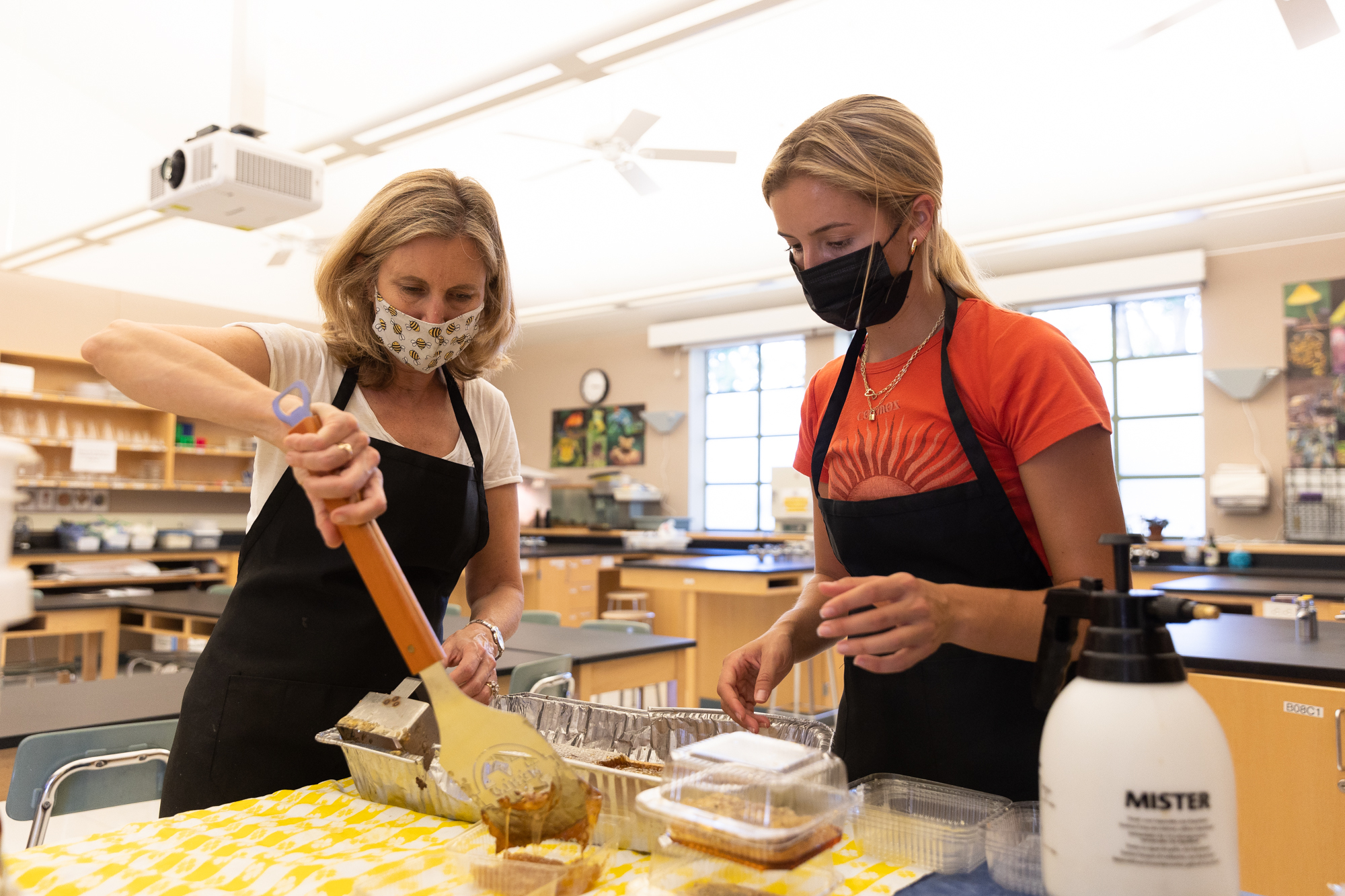
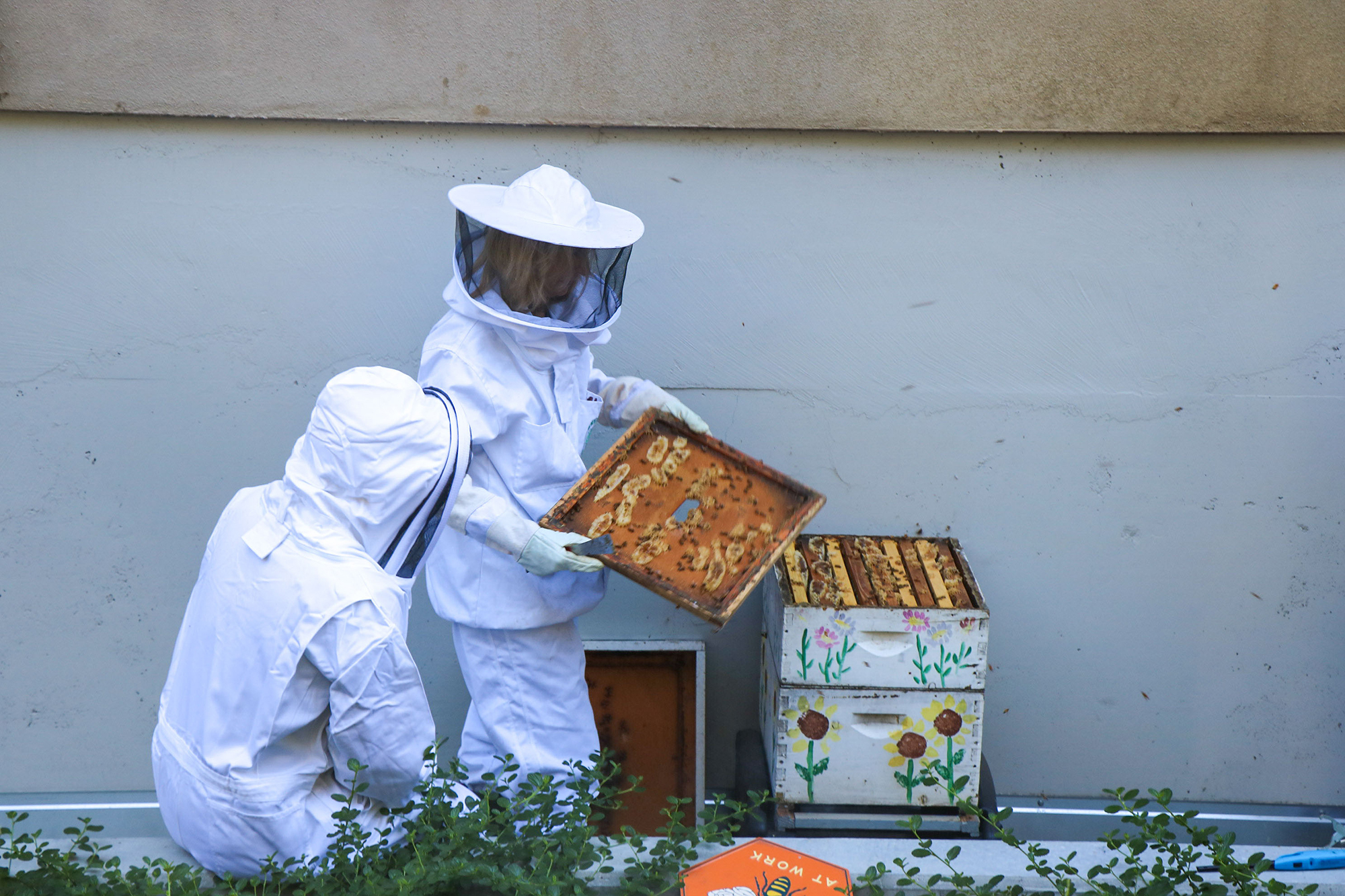
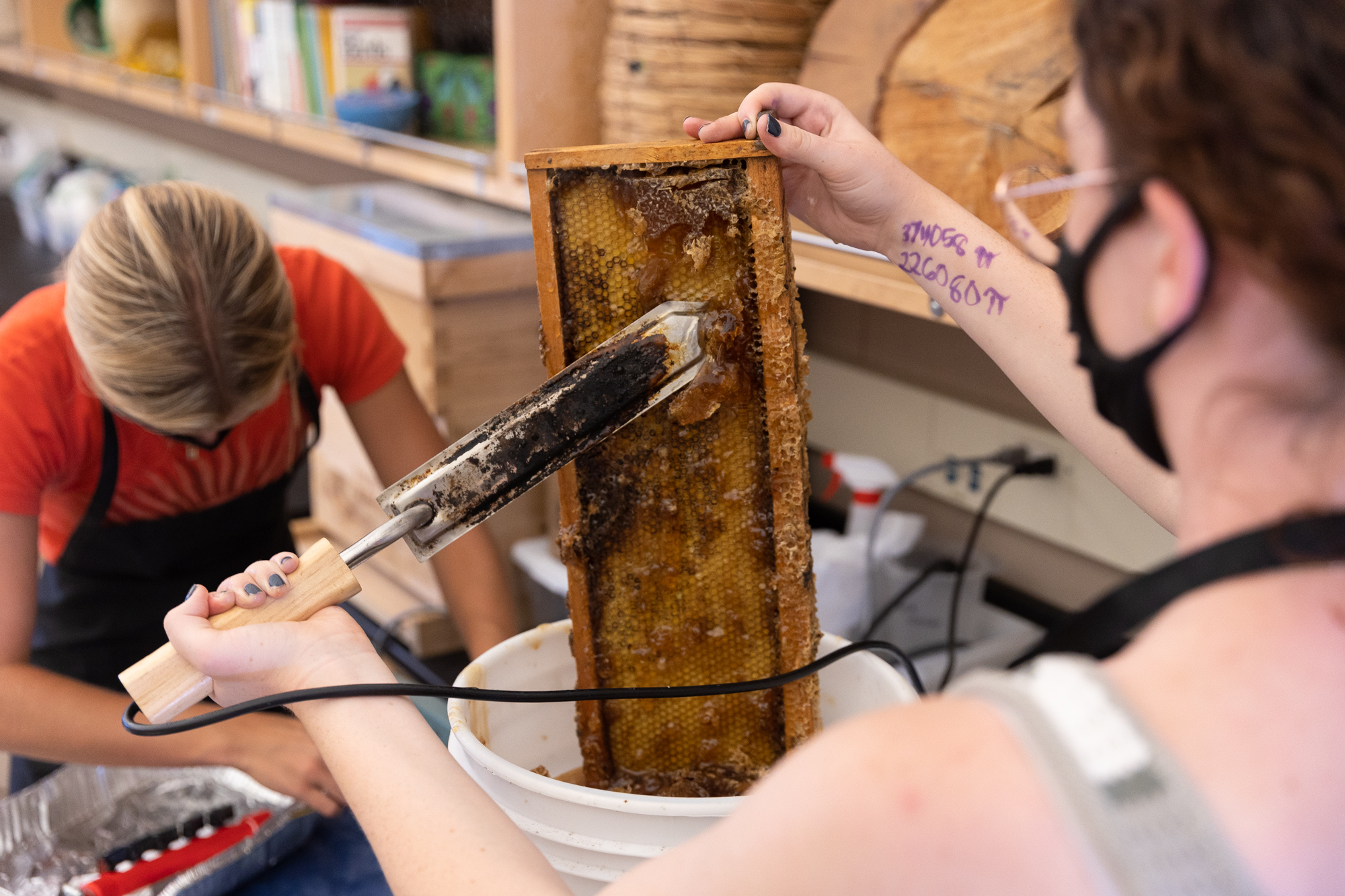
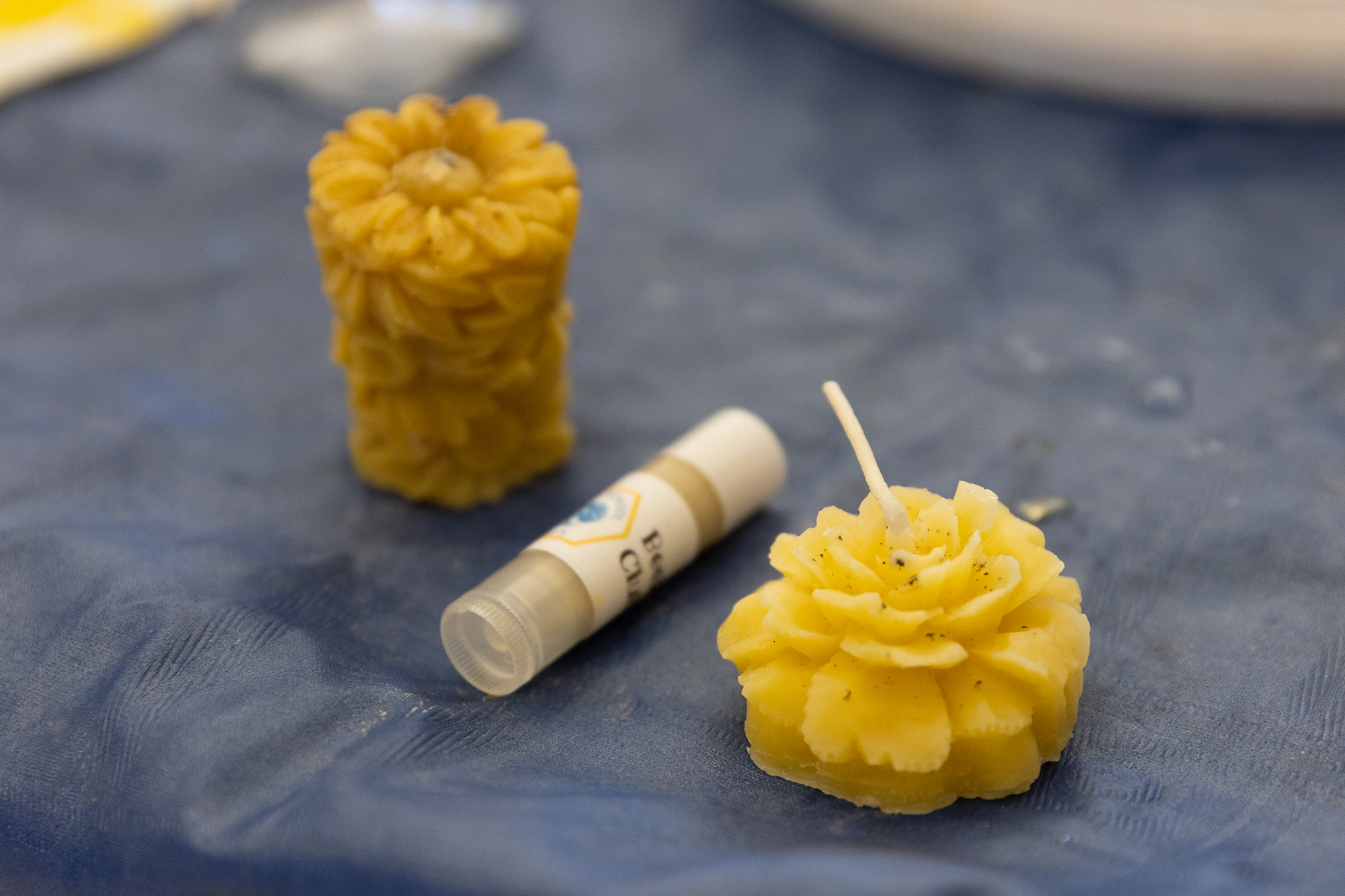
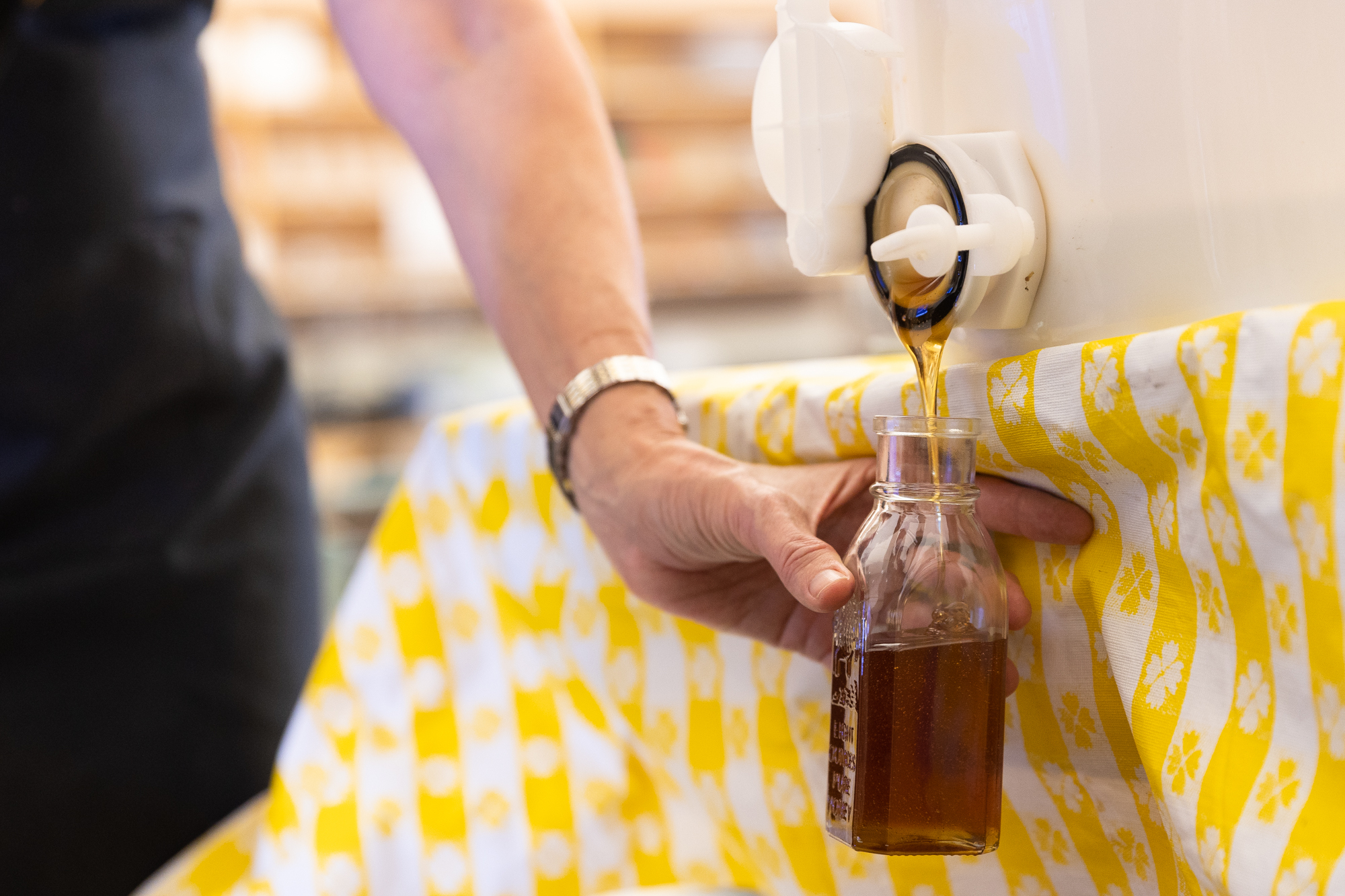
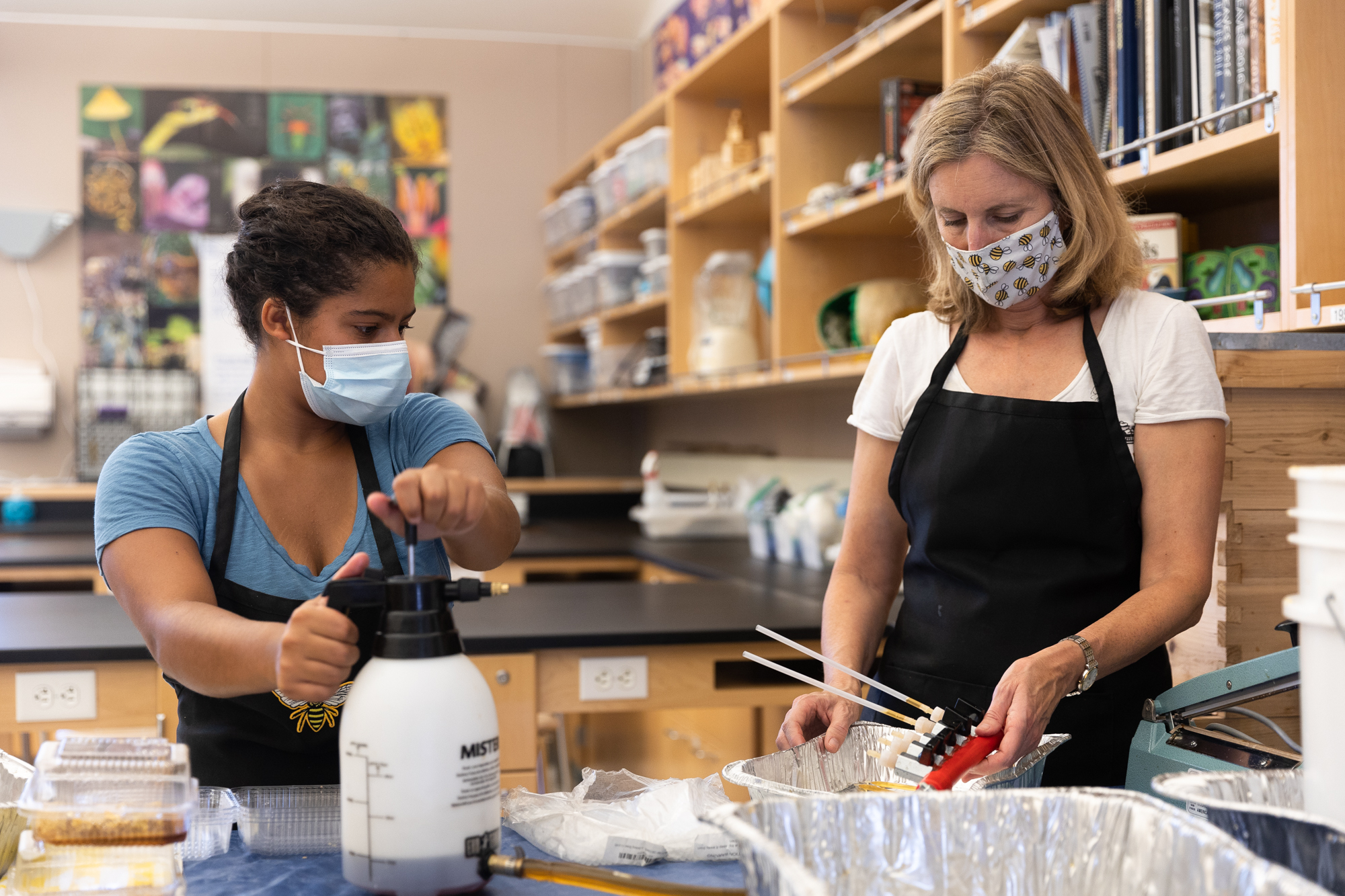

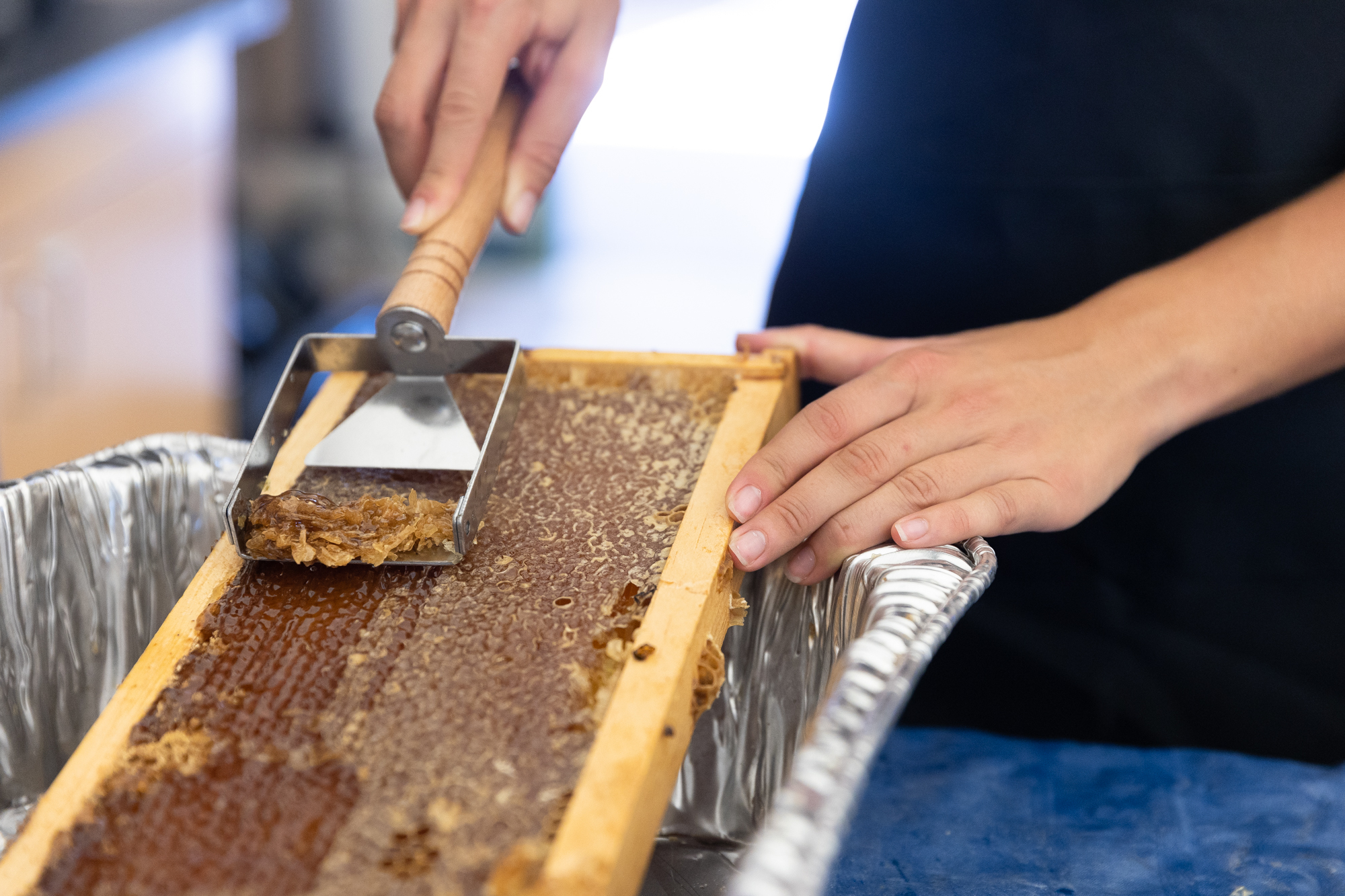

Comments